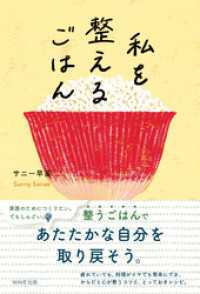- ホーム
- > 洋書
- > 英文書
- > Literary Criticism
Full Description
This collection of essays is the first book to take up the urgent issue of torture from the array of approaches offered by the arts and humanities. In the post-9/11 era, where we are once again compelled to entertain debates about the legality of torture, this volume speaks about the practice in an effort to challenge the surprisingly widespread acceptance of state-sanctioned torture among Americans, including academics and the media-entertainment complex. Speaking about Torture also claims that the concepts and techniques practiced in the humanities have a special contribution to make to this debate, going beyond what is usually deemed a matter of policy for experts in government and the social sciences. It contends that the way one speaks about torture—including that one speaks about it—is key to comprehending, legislating, and eradicating torture. That is, we cannot discuss torture without taking into account the assaults on truth, memory, subjectivity, and language that the humanities theorize and that the experience of torture perpetuates. Such accounts are crucial to framing the silencing and demonizing that accompany the practice and representation of torture.
Written by scholars in literary analysis, philosophy, history, film and media studies, musicology, and art history working in the United States, Europe, and the Middle East, the essays in this volume speak from a conviction that torture does not work to elicit truth, secure justice, or maintain security. They engage in various ways with the limits that torture imposes on language, on subjects and community, and on governmental officials, while also confronting the complicity of artists and humanists in torture through their silence, forms of silencing, and classic means of representation. Acknowledging this history is central to the volume's advocacy of speaking about torture through the forms of witness offered and summoned by the humanities.
Contents
Introduction Julie Carlson and Elisabeth Weber: For the Humanities I. America Tortures Lisa Hajjar: An Assault on Truth: A Chronology of Torture, Deception and Denial Alfred McCoy: In the Minotaur's Labyrinth: Psychological Torture, Public Forgetting, and Contested History II. Singularities of Witness Reinhold Gorling: Torture and society (translated from German by Glenn Patten) Susan Derwin: What Nazi Crimes Against Humanity Can Tell us about Torture Today Elisabeth Weber: "Torture was the essence of National Socialism". Reading Jean Amery today Sinan Antoon: What did the Corpse Want? Torture in Poetry III. Graphic Assaults, Sensory Overload John Nava: Thoughts on the making of "Signing Statement Law or An Alternate Set of Procedures" ("America tortures") and "Our Torture is Better than Their Torture" Abigail Solomon-Godeau: Torture and Representation: The Art of Detournement Stephen Eisenman: Water-boarding -- A Torture both Intimate and Sacred Hamid Dabashi: Damnatio Memoriae Viola Shafik: Rituals of Hegemonic Masculinity: Cinema, Torture and the Middle East Peter Szendy: Music and torture: the stigmata of sound and sense (translated from French by Allison Schifani and Zeke Sikelianos) Christian Gruny: The language of feeling made into a weapon. Music as an instrument of torture IV. Declassifying Writing Julie Carlson: Romantic Poet Legislators: The Ends of Torture Darieck Scott: The fine details: Torture and the Social Order Colin Dayan: Reasonable Torture, or the Sanctities (Gaza, September 2009) Richard Falk: John Yoo, the Torture Memos, and Ward Churchill: Exploring the Outer Limits of Academic Freedom








